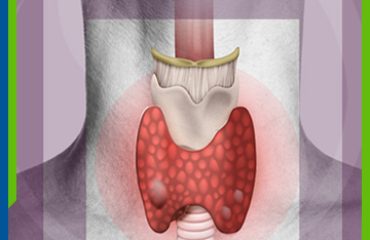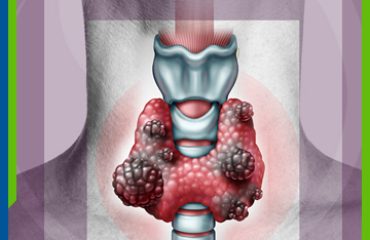
What is Graves Disease?
Graves is an autoimmune disease also known as toxic thyroid (hyperthyroid). The disease causes a hyperactive thyroid gland, resulting in excessive amount of hormone secretion. Increase in thyroid hormone levels indicates hyperthyroidism. Hyperthyroidism profile can occur due to many reasons, Graves disease in particular.
Thyroid hormones impact many functions from nerve system to brain development, body temperature to metabolism. Changes in thyroid hormone levels directly affect functioning of all those systems. Hyperthyroidism symptoms develop in all parts of the body.
Causes of Graves Disease
Graves is an autoimmune disease in which the autoimmune system produces antibodies against certain cells in thyroid gland. Normally, thyroid gland functions are controlled via a hormone released by pituitary gland in the brain. In Graves disease, antibody produced by autoimmune system (thyrotrophine receptor antibody, TRAb) mimics the pituitary gland hormone, overstimulating the thyroid gland, resulting in excess hormone production. High thyroid hormone levels ultimately result in hyperthyroidism profile.
Graves ophthalmopathy is an eye problem resulting from hyperthyroidism. In Graves ophthalmopathy, certain carbohydrates accumulate in muscles and other tissues behind the eye. Although the exact cause of this condition is unknown, it is believed that the antibody called TRAb, which deteriorates thyroid functions, plays role in these changes occurring around the eye.
Risk Factors of Graves Disease
- Heritage: Genetics is believed to play role in development of Graves disease. Individuals with history of Graves disease in the family are more prone to the disease.
- Gender and age: Graves disease is more common among women than men, and often develops before the age of 40.
- Generic autoimmune diseases: Individuals with autoimmune diseases such as Type 1 diabetes, rheumatoid arthritis have higher risk developing Graves, which is also an autoimmune disease.
- Stress: Diseases, stressful life; may trigger Graves development in patients who are genetically prone to the disease.
- Pregnancy: Graves disease risk is higher among women who are pregnant or recently gave birth.
- Smoking: Smoking affects immune system, increasing the risk of hyperthyroidism. Graves ophthalmopathy is more common in smoking Graves patients than those who do not smoke.
Graves Disease Symptoms
Anxiety, restlessness, heat intolerance, moist skin, weight loss, enlarged thyroid gland, irregular periods, erection loss, lack of sexual desire, frequent bowel movement, protruding eyes (ophthalmopathy), dizziness, skin thickening, fast heartbeat (tachycardia), pounding of heart (palpitations), sleeping disorders are common symptoms.
Graves ophthalmopathy signs and symptoms may be observed in 30% of Graves disease patients. In Graves ophthalmopathy, carbohydrates accumulating in muscles and other tissues behind the eye cause inflammation on peripheral eye tissues. Graves ophthalmopathy symptoms are protruding eyes, sense of itching, light sensitivity, sense of pressure or pain in the eyes, double vision, swollen and retracted eyelids, redness, infection, loss of vision.
Graves dermopathy is a rare symptom of Graves disease. Patients with Graves dermopathy may have skin irritation and thickening particularly around heels and calves.
Treatment of Graves Disease
Graves disease treatment is administered to prevent excessive thyroid hormone production, and reverse the effects of produced hormones on the body.
One of the treatment procedures is radioactive iodine (RAI) therapy. Radioactive iodine is administered orally to the patient during this treatment. Because the iodine is a substance that thyroid gland requires to produce hormone, thyroid gland uptakes the radioactive iodine. Once the radioactive iodine enters into thyroid cells, it starts breaking hyperactive thyroid cells by radiation, resulting in gradual shrinking of the gland, and ultimately Graves symptoms diminish. Radioactive iodine treatment is administered for few weeks to few months. Side effects of this procedure are sensitivity around the neck and temporary increase in thyroid hormone levels.
Radioactive iodine therapy is not administered to pregnant or nursing women.
Another method of treatment is anti-thyroid drugs. These drugs prevent cellular uptake of iodine that thyroid glands need to produce hormone. Thus, hormone synthesis is reduced.
Beta blocker drugs can also be used in hyperthyroidism treatment. These drugs do not reduce thyroid hormone production but neutralize effects of thyroid hormones on the body. Beta blockers help elimination of symptoms such as increased heartbeat, anxiety, restlessness, sweating and diarrhea.
Another treatment for Graves disease is surgical procedure. In surgical procedure, thyroid gland is removed partially or completely. It may be mandatory for the patient to take external thyroid hormone as replacement following the operation. The structures adjacent to the thyroid gland such as vocal cord nerves and parathyroid glands can be damaged during Graves disease surgery. However, risk of complications is low if performed by an experienced surgeon.
Graves disease is one the most common causes of hyperthyroidism. The disease, if left untreated, may lead to serious health problems. Individuals experiencing one or more symptoms of Graves disease should immediately report to a relevant physician.





